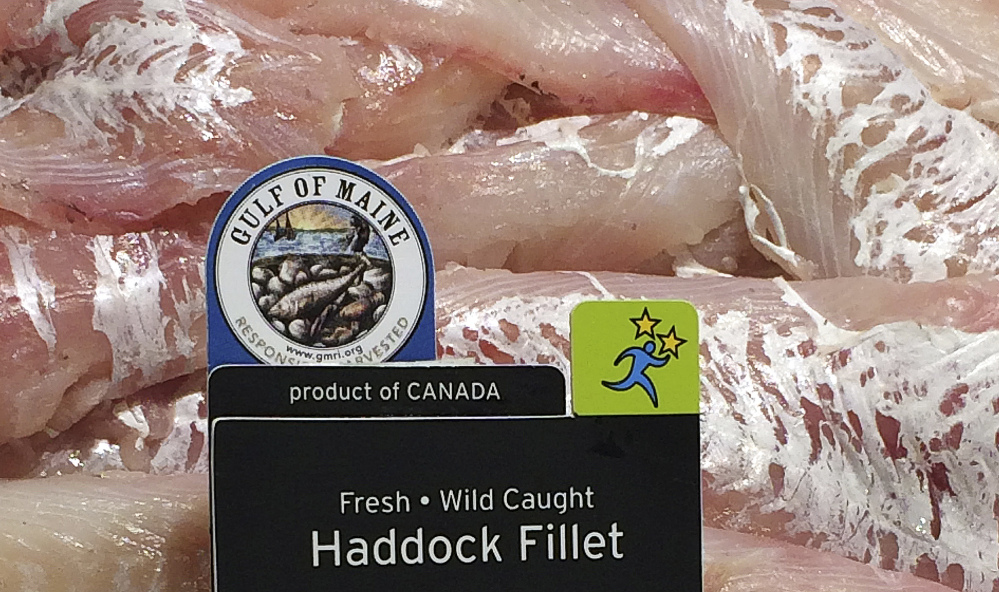Busy consumers don’t have time to research where their food comes from. They need a label they can trust. But while it’s easy to say that a product is good for the environment, it can be hard to get someone to back up that claim.
People who have fish on their shopping list can trust in its origins, as long as it has the Gulf of Maine Research Institute’s “responsibly harvested” label. Now the Portland-based institute is targeting a different audience: students at the many colleges and universities in New England. And the facts show there’s definitely a place for this consumer education campaign in institutions of higher education.
The Gulf of Maine Research Institute launched the branding program in 2011. The label applies to 10 species caught in the Gulf of Maine, between Cape Cod and Nova Scotia. To get the label, vendors must show that the seafood has been harvested in a way that supports the stock’s long-term health, as outlined in stock assessments and management plans.
The institute’s approach to supporting a sound fishery is in keeping with what other experts have found: Calling on individual consumers to avoid buying threatened fish species is less effective than helping to ensure that large retailers don’t carry these species.
Shaw’s and Hannaford carry fish with the institute’s “responsibly harvested” stamp, and the two New England grocery giants have hundreds of thousands of customers. Wellesley College in Massachusetts and the University of New Hampshire are the first institutions of higher education to sign on to use the label.
By reaching out to college students, the institute is engaging a natural audience for its sustainability campaign. Though stereotyped as living on cold pizza and cheap beer, young people are at least as interested in healthy dining options as their parents.
Informal ranking and review sites have come out with lists of America’s 10 healthiest college dining halls. Some colleges offer undergraduate and graduate degrees in sustainable food systems; others have on-campus gardens and organic farms.
It would be unrealistic to expect all collegians to care about where the fish on their cafeteria tray comes from. But reaching even a small percentage of the estimated 1.2 million New England college students is a credible goal – and it’s likely that some of them will carry this concern into their adult lives, as they make decisions about feeding themselves and their families.
So at the same time that the Gulf of Maine Research Institute seeks to advance the well-being of the fishery, the institute is offering the next generation a hands-on lesson in sustainability.
Send questions/comments to the editors.



Success. Please wait for the page to reload. If the page does not reload within 5 seconds, please refresh the page.
Enter your email and password to access comments.
Hi, to comment on stories you must . This profile is in addition to your subscription and website login.
Already have a commenting profile? .
Invalid username/password.
Please check your email to confirm and complete your registration.
Only subscribers are eligible to post comments. Please subscribe or login first for digital access. Here’s why.
Use the form below to reset your password. When you've submitted your account email, we will send an email with a reset code.